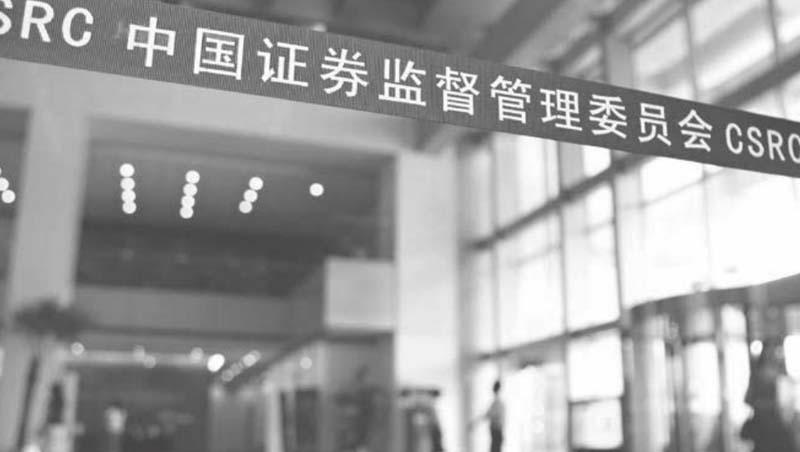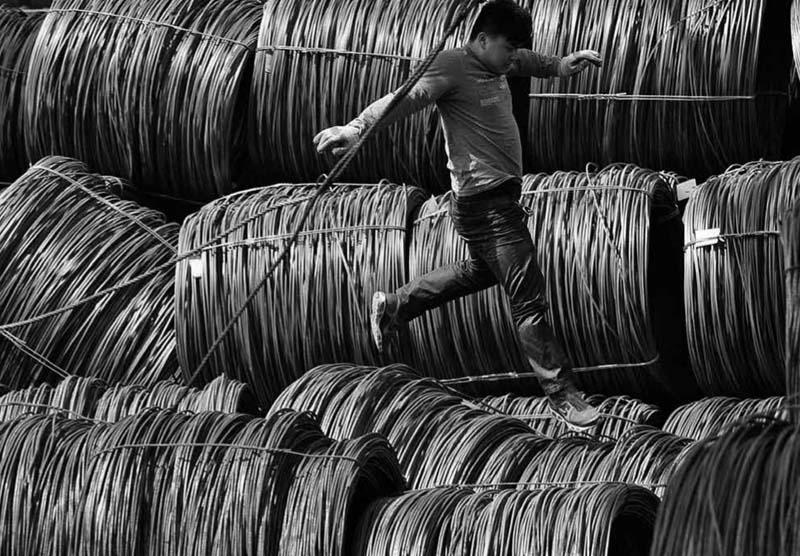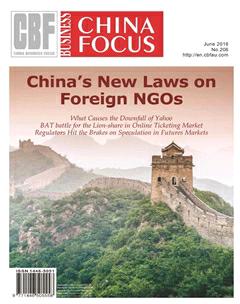Regulators Hit the Brakes on Speculation in Futures Markets
Officials governing futures markets are trying to cool a speculative fervor that has pushed up prices and trading volumes for raw materials and agricultural products in recent months. The price of futures contracts for items including coking coal, steel and even eggs have risen since the beginning of the year. Between January 4 and April 26, the price of coking coal contracts increased by two-thirds, data from futures exchanges show, and the number of contracts traded rose from 106,000 to 2.42 million. Price indexes of steel rebar, the rods used to reinforce concrete, and iron ore went up by over 40 percent during the same period.
An increase in speculation in futures markets in China“poses multiple dangers to global commodity pricing stability,” a recent report from Citigroup said. The froth in the commodities markets is being caused by retail investors flocking into it after the stock market rout last summer, experts said, and because the bond market has been rattled by an increase in the risk of defaults.
“In the past, fewer than 20 investors opened futures accounts every month, but now it has more than doubled to about 50 per month,” the manager of a futures brokerage said Most of the newcomers are retail investors, the manager said. Investors hunting for short-term gains have pumped up commodity prices quickly.
The volume of iron ore traded on the Dalian exchange rose more than 400 percent from January to late April compared to the same period in 2015, a report by the investment bank Goldman Sachs said. On some days, trading volume of iron ore futures exceeded the total amount of iron ore that China imported in 2015, the investment bank said.
On March 10, 10.5 million iron contracts were traded, which meant the quantity of the metal traded on paper on that day exceeded 1 billion tons, more than the imports for all of last year. Daily volumes for iron futures in 2015 ranged from 150,000 to 5 million contracts, according to Reuters.”The problem in the futures market is that traders looking for quick gains have outnumbered producers or miners who use it to hedge long-term risks caused by price fluctuations,” said a source close to the China Securities Regulatory Commission.“Too much speculation could turn the market in to a gambling den.”
Speculation Fervor
An investor held onto an iron ore contract or a steel rebar future traded on the Shanghai exchange for just four hours on average, said Wu Zhili, an analyst at Shenhua Futures Brokerage Co. Ltd., while investors in the New York Mercantile Exchange held contracts for 40 to 70 hours on average. Such short-term deals accounted for almost 70 percent of transactions, said Wu.endprint
And there are signs the system is having trouble handling all the action. The Shanghai Futures Exchange went offline for a few minutes when trading began on April 22 because its computers could not handle the transaction volume, the exchange said.
The search for quick gains gained steam after futures brokerages got into the wealth management business. By the end of February, the size of wealth management funds managed by futures companies reached 114 billion yuan, seven times the figure at the beginning of 2015, said Wu Xiaoyong, an official from the securities regulator. Futures companies earned 131 million yuan from their wealth management businesses last year.
Banks looking for better yields are pouring money from their wealth management products in to commodities, a bank executive said. Investment fund managers are also eyeing the futures market. Four mutual funds are waiting for permission from the regulator to invest in copper, non-ferrous metals and agricultural goods contracts, the CSRC said.
Almost all mutual funds in the country invest in stock or bond markets, said Gao Shang, head of research at Haitong Futures Co. Ltd. The only one trading in futures was set up in August by UBS SDIC, a joint venture between the Swiss financial services company UBS AG and SDIC Trust Co. Ltd. in Shanghai. The 347 million yuan fund invests in silver contracts, the company said, and the fund only saw a 0.006 percent rise in value over the past seven months.
Cooling Measures
Exchanges in Dalian, Shanghai and the central city of Zhengzhou moved quickly to curb excessive speculation, and prices have begun to moderate. Dalian increased transactions fees on coking coal contracts 11 times to 0.072 percent from April 22 to April 27 “to restrain excessive, short-term speculative transactions … and to maintain market stability,” the exchange said.
The margin trading requirement for iron ore contracts, a akin to a deposit the investors must pay, was raised to 8 percent from 7 percent. Previously, the exchange pushed up transaction costs for items including polyethylene and soybeans.
The Shanghai exchange increased transactions fees for steel rebar to 0.01 percent from 0.006 percent on April 25,and also cut night trading hours for contracts of rebar, hotrolled coil steel and petroleum pitch by two hours from four hours, starting from May 3.These interventions have helped keep speculators at bay. On April 27, the prices of coking coal and iron ore fell by more than 5 percent on the exchange in Dalian, in the northeast. The total volume of contracts traded dropped to 1.9 million on April 29 from 10.5 million on March 10.endprint
Several analysts said that regulators may take tougher steps to prevent a bubble. Others warned exchanges should be prudent when intervening to avoid the kind of turmoil caused when a circuit breaker mechanism was introduced to the stock market in January that would halt trading if the bourse fell by certain levels. It aimed to limit stock market losses, but instead triggered a wave of panic selling.
Policymakers “should learn from the stock market debacle,” said Gao, and manage market liquidity levels and avoid sudden policy changes that may trigger a meltdown.Others said there was no reason for alarm. One cannot say the market is overheated by only looking at an increase in transaction volumes, said Zhu Shiwei, a metals analyst of Yongan Futures Broker Co. Ltd.
The price gap between forward contracts and the spot market should also be considered. If the contract price was not significantly above the spot price, a rise in transaction volumes may be a sign that the commodities market is recovering after a slump in recent years, Zhu said.
Delistings on Hold as CSRC Slams a Back Door
Its not uncommon for a retail investor in China to dabble in numerology, even subconsciously, while playing the stock market.But after share prices surged for Shanghai-listed companies with the number “360” in their ticker symbol-like market codes, regulators found a new reason for alarm over backdoor listings that dont add up.
The backdoor listing route through minor and shell companies has been cited as the most likely avenue for internationally known Chinese companies seeking to delist in the United States and raise new funds on a Shanghai or Shenzhen bourse.
Five companies have taken that route since 2013, regulators said, and an analysis of state media and company reports found dozens more were preparing to follow suit.Yet the China Securities Regulatory Commission has decided to “conduct an in-depth study” of Chinese companies that have signaled interest in delisting from a U.S. stock market and relisting on the Shanghai A-share market through an initial public offering(IPO), merger or acquisition, CSRC spokesman Zhang Xiaojun said May 6.
The regulatory mood darkened further three days later when, in an article published in the official Securities Journal newspaper, a former CSRC branch director warned about possible market violations linked to backdoor listings and shell company investments. Zhang Yundong, who headed the agencys Shenzhen office between 2000 and 2012, wrote in a commentary for the paper some market players may be defrauding investors by manipulating financial information and share prices. And some may be guilty of insider trading, he wrote.endprint
Moreover, citing fears of a dangerous share price bubble, CSRC in early May put a temporary hold on all stock activity related to mergers and acquisitions among Internet-platform companies in the online financing, videogame, film, TV and virtual reality sectors, a person close to the commission said. The ruling was likely to affect three companies – China Mobile Games Entertainment Group, Bona Film Group Ltd. and Youku Tudou – that recently delisted in the United States and started restructuring assets to prepare to join a Chinese bourse.
Plus in March, in a related move, the National Peoples Congress, the top legislator, scrapped a plan initiated by the State Council in June 2015 to create a new trading platform for technology companies through the Shanghai Stock Exchange. A fund manager who asked not to be named said the decision dashed mainland listing hopes among unprofitable tech companies because the platform, unlike other Chinese bourses, was slated to welcome money-losing innovators.
Zhang said CSRCs decision to monitor backdoor listings came after officials “noticed a big difference in (share) prices between the domestic and the U.S. markets” as well as a raft of “shell company speculation.”One event that likely fueled regulator suspicions followed the June 2015 announcement by online security software developer Qihoo 360 Technology Co. that it planned to delist from the New York Stock Exchange, where the companys stock has traded since 2011.
Qihoo has not spelled out all of its plans for floating stock in China, but market speculation has revolved around a backdoor listing scenario using a listed shell company. Based on that speculation, according to a brokerage source who asked not to be named, Chinese investors recently flooded brokers with buy orders for shares in shell companies whose stock codes included the number “360.””The market is too irrational,” said the source, who specializes in backdoor listings.“Its ridiculous.”
Tighter Times
The CSRC decision for a “study” and Zhans statement a few days later sent a message to the market that government policies “will definitely be tightened,” said Wei Shanwei, managing director of the Beijing-based investment bank China Renaissance Partners.
Deng Ziqi, an analyst who tracks U.S.-listed Chinese company stock for the San Francisco-based investment firm Matthews International Capital, said CRSC wants to closely monitor as well as guide companies while they map out routes to Chinese stock market fundraisers.endprint
“In the long run, many Chinese companies will eventually head back” to domestic stock markets, Deng said. “But CSRC will pay more attention to the impact of market speculation over backdoor listings.”
CSRCs message had an immediate impact on the share prices of most U.S.-listed Chinese companies slated to sail home after pulling out of New York. The next day on the Nasdaq exchange, Internet service provider 21Vianet Group Inc. saw its share prices fall 24 percent, while shares in e-commerce website operator Dangdang Inc. and Qihoo slumped 13 percent and 11 percent, respectively.
The Bloomberg China-U.S. Equity Index, which tracks U.S.-traded Chinese companies, fell more than 3 percent within three days of the CSRC announcement.No wonder brokers in China took CSRCs decision as a call to action. Some played it safe by refusing new delisting projects and accelerating work on any projects already on the table.
“We will try to speed up ongoing (U.S. delisting and China-listing) projects before new (regulatory) policies are issued,” said an brokerage source who focuses on investment banking but requested anonymity. “We will not accept new projects due to policy risks.”
According to a survey of state media and company reports, 38 U.S.-listed Chinese companies last year announced plans to delist as a first step toward listing on a Chinese bourse. As of mid-May, according to these reports, at least 28 companies had started delisting procedures.
Five Chinese companies including online game developer Giant Interactive Group and outdoor advertiser Focus Media Holding have delisted in the United States and listed on the Shanghai and Shenzhen A-share market over the past three years, CSRC said. Each has seen its share value surge in China.
For example, just two months after online video service provider Beijing Baofeng Technology Co. joined Shenzhens ChiNext exchange in March 2015, the companys share price surged to 372 yuan from less than 10 yuan. The company delisted from Nasdaq in 2013.
The idea of swapping one stock market for another reflects an assumption held by Chinese company executives that their Shanghai or Shenzhen share values would be higher than those traded in New York.
Chinese stock market data provider Wind Info. concluded that U.S. shares of Chinese companies were trading in 2015 at an average price-to-earnings ratio of 23, compared to a PE ra- tio of 57 for the average share in Shanghai and Shenzhen. At the same time, technology and fast-growing companies trading on Shenzhens ChiNext board posted an average PE ratio of 70.endprint
Chinese technology firms listed in the United States posted an average PE ratio of 15 in 2015, compared to 97 for similar companies in the same sector listed on the Shanghai A-share market, Wind said.
A Qihoo document said the company expects its market capitalization would exceed US$ 58 billion after listing on the Shanghai A-share market. Its current market cap in New York is about US$ 9 billion.
Danger Zone
Wei said regulators are especially concerned about huge cash outflows from the mainland as Chinese companies buy out holders of their U.S. stock in the course of delisting.One private equity source who asked not to be named said, “Chinese companies will have to spend billions of dollars to buy shares from overseas market investors, leading to a huge capital outflow” from China.”This is something regulators dont want to see.”
Chinese companies have been listing in New York since 1992. Some chose to go abroad to escape relatively strict and time-consuming IPO procedures in China, while others bowed to foreign investor demands. After going abroad, Deng said, many Chinese company executives regretted the decision after deciding that their share values would have been higher at home due to Chinas investment climate.
“The Chinese capital market has a greater appetite for risk,” Deng said. “Its valuation system is different than that in developed markets. It can give weaker companies higher risk premiums that they could not get in other markets.”
Among the risk-takers that might be willing to send coming-home company share prices through the roof are retail investors seeking quick gains through wealth management products.
For investors willing to pony up at least 1 million yuan, wealth management firms have been promising annual yields of up to 30 percent for products that include shares in Qihoo and other companies. Retail investors with thinner wallets can also play the game by buying shares in these products equal to between 1 percent and 20 percent, said a private equity investor who asked not to be named.
But this investment game is putting retail investors at risk, said Bao Fan, chairman of China Renaissance.
A CSRC official who declined to be named said that “val-uation arbitrage” has been the “obvious” reason why, to date, share values have jumped dramatically for companies upon joining a Chinese bourse after delisting from a U.S. exchange.
Values shot up the moment a company completed the switch, even though “no matter where its listed, a companys business fundamentals do not change greatly in a short period of time,” said the investment banking-focused broker. Thus, companies rushing to come home have been “betting on making huge profits from a valuation surge by moving to a market where valuations are high.”endprint
But CSRCs decisions threw cold water on the process and raised questions about scheduled delistings in New York and backdoor listings in China. The commission “is sending a strong signal to stop the hype,” said Wei.
“A backdoor listing is a normal market practice,” Wei said. But regulators have detected “price distortions and potential violations” of stock market regulations.
Companies with strong financials may be more resilient to the policy change. In due time after a U.S. delisting, companies with strong financials could launch a mainland IPO or float stock through a backdoor listing, said a private equity source. They also might consider climbing aboard the Hong Kong Stock Exchange or Chinas New Third Board for private firms.
Because no one knows how long the CSRC decision might stand, or whether further restrictions might be imposed, investors who hold shares in dozens of coming-home companies are now biting their nails.
Qihoo investors are especially anxious. The company had started raising funds to buy back New York shares and delist before CSRC took its latest action. And Qihoos main underwriter, the brokerage Huatai Securities, had been expecting the company to finish the delisting process in June.
Investors Complain About Stock Suspensions as MSCI Reviews A-share Inclusion
Institutional investors consulted by international index compiler MSCI Inc. on whether to include mainland Chinese stocks in its widely followed Emerging Market Index have said their biggest concern was the arbitrary suspensions to trading that Chinese firms can exercise, sources with knowledge of the matter said.
MSCI decided last June not to add companies listed on Shanghai and Shenzhen stock exchanges to this index, which serves as a benchmark for the pricing of assets worth US$1.5 trillion worldwide, citing problems such as low investment quotas and restraints on capital mobility. It said it was working with the China Securities Regulatory Commission (CSRC) to resolve these issues.
In April, the firm started consulting investors using its services for their opinions on whether to include Chinas A-share market this year, and the complaints they received indicate that most investors were worried about regulations that permit companies to halt trading almost arbitrarily, the sources said.
“Arbitrary suspension of trading hurts investors trading right,” one of them said, adding that Chinese bourses typically have a higher percentage of firms whose stocks are not traded compared to their foreign counterparts.endprint
Under current regulations, companies can suspend trading quickly after issuing a brief notice, claiming pending issues such as the sale of additional stocks or an asset restructuring. They can also resume trading saying negotiations have failed without giving investors further details.
Also, while the bourses normally limit trading halts to three months, in practice, many firms have been on a longer hiatus by requesting for the suspension to be extended.
Chinese stock exchanges have been working to improve their rules to prevent companies from abusing trading suspensions, sources familiar with the situation said. Companies would be required to provide more details regarding their reasons for halting the trading of shares, and if negotiations fail, they would have to tell investors what happened and why, they said.
Many companies are believed to have taken advantage of current lax trading rules to stop investors from dumping their shares amid last years stock market rout. Nearly half of all stocks listed on the A-share market were not tradeable as of July 8. Many firms rushed to halt trading after sharp falls in their share prices.
More recently, China Vanke Co., the countrys largest residential property developer by sales, suspended the trading of its stocks in both Hong Kong and Shenzhen on December 18, saying it needed to restructure its assets. The suspension was triggered by what the firms management said was a hostile takeover by Shenzhen-based property developer Baoneng Group. While trading resumed in Hong Kong on January 16, the stock is still suspended on the Shenzhen exchange.
The investors MSCI talked to were mainly concerned that suspensions like this may affect their liquidity, the sources said.
Other issues investors have raised include demand for the government to further relax rules limiting foreign investorsability to transfer funds out of China, they said.
China relaxed the rules in February by permitting Qualified Foreign Institutional Investors (QFII) to invest under a more flexible scheme, replacing fixed quotas with one linked to the size of funds managed by a company. The government also reduced the time QFII funds must wait to transfer money out of China from one year to three months, but it requires them to do so in batches with a monthly limit linked to the amount of their investment in the mainland market.
The Chinese government has sought to have the A-share market represented in MSCIs index because it would help attract capital from the worlds top institutional investors to the mainland.
Participation of global investors will help improve the investor structure of the A-share market and facilitate reforms needed to match international best practices, a person close to the CSRC said. “Many problems with the market raised by foreign investors are precisely those that Chinese investors want solved as well,” he said. “Arbitrary trading suspensions are one example.”endprint
- 中国经贸聚焦·英文版的其它文章
- Ling Jihua Former vice chairman of the CPPCC National Committee indicted for involving in three crimes
- Han Xiancong Former vice chairman of CPPCC in Anhui Province accused of taking bribes over 23.28 million yuan
- Ma Yi Standing secretary of the Henan Provincial Party Committee get promot ed to be the secretary of Zhengzhou Municipal Party Committee
- Neglected Truth of Gaokao Enrollment:More Difficult to Enroll Satisfactory Students
- Why do Key SOEs and Banks Remain in the Real Estate Market?
- BAT battle for the Lion-share in Online Ticketing Market

